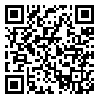BibTeX | RIS | EndNote | Medlars | ProCite | Reference Manager | RefWorks
Send citation to:
URL: http://ijdld.tums.ac.ir/article-1-5334-en.html

 , MehrAli Rahimi *
, MehrAli Rahimi * 
 2, Elhame Niromand3
2, Elhame Niromand3 
 , Elahe Ajami4
, Elahe Ajami4 
 , Afsane Egbalian3
, Afsane Egbalian3 
 , Majid Barati5
, Majid Barati5 
 , Nader Rajabi Gilan6
, Nader Rajabi Gilan6 

2- 2. Kermanshah Diabetes Research Center, Kermanshah University of Medical science ,Kermanshah ,Iran ,
3- 2. Kermanshah Diabetes Research Center, Kermanshah University of Medical science ,Kermanshah ,Iran
4- 3. Department of Family Health, Kermanshah city health center, Kermanshah University of Medical science ,Kermanshah ,Iran
5- 4. Department of Health Education, School of Public Health, Hamadan University of Medical Sciences, Hamadan, Iran
6- 5. Social Development and Health Promotion Research center, Deputy of Research, Kermanshah University of Medical science ,Kermanshah, Iran
Background: The aim of this study was to investigate the Belief related to Rejection of Insulin injection among type 2 diabetic patients based on Health Belief Model (HBM).
Methods: This cross-sectional study was carried out on 400 diabetic patients referred to Kermanshah Diabetes Research Center who were recruited with available sampling method. The participants completed a self-administered questionnaire including demographic characteristics, and HBM construct. Data was analyzed by
Results: The maximum scores of Participants in perceived susceptibility, perceived severity, self-efficacy, perceived benefits, perceived barriers, cues to action was 66/95%, 60/7%, 59/95%, 51/97%, 68/04%, 74/74%respectively. Results showed that, in diabetic patients (II) require insulin level Susceptibility, severity and perceived benefits were intermediate, and the barriers to acceptance of insulin therapy were more.
Conclusion: Preparing training packages for promoting knowledge and self-efficacy and removing related berries of insulin therapy acceptance in diabetic patients are necessary.
Received: 2015/04/17 | Accepted: 2015/11/9 | Published: 2016/03/7
| Rights and permissions | |
 |
This work is licensed under a Creative Commons Attribution-NonCommercial 4.0 International License. |



